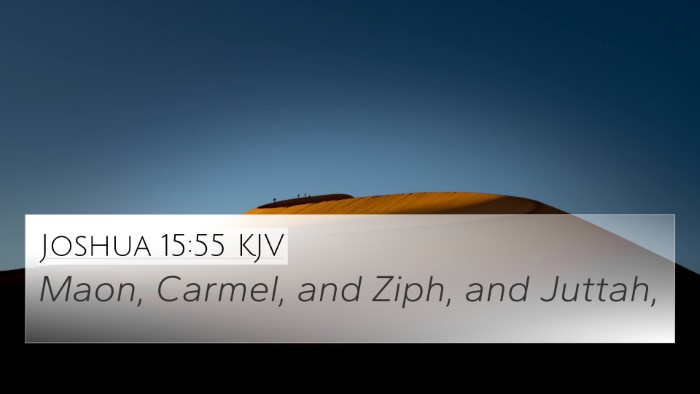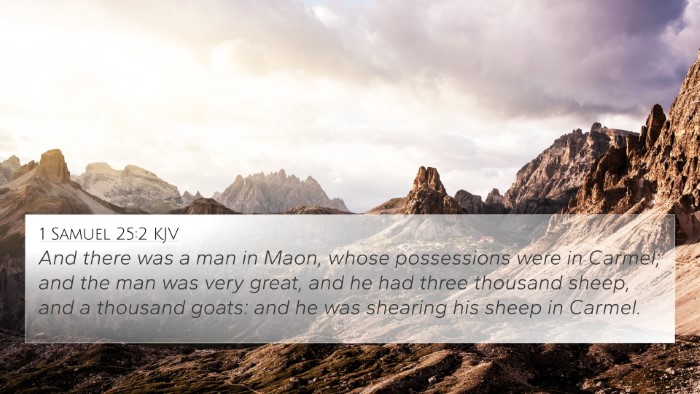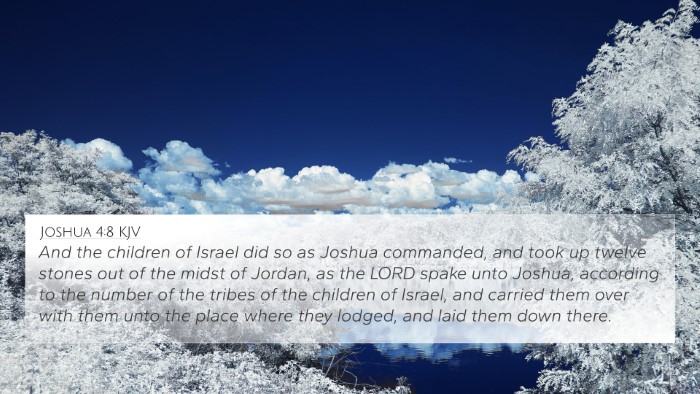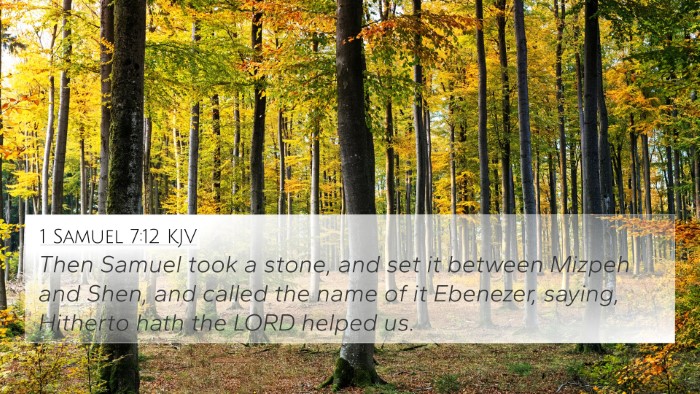Understanding 1 Samuel 15:12
Verse: "And when Samuel rose early to meet Saul in the morning, it was told Samuel, saying, Saul came to Carmel, and, behold, he set him up a place, and is gone about and passed on, and gone down to Gilgal." (1 Samuel 15:12)
This verse captures a significant moment in the narrative of King Saul's disobedience and the role of the prophet Samuel in communicating God's will. To fully understand its implications, we can draw insights from several public domain commentaries.
Summary of Interpretations
From the combined insights of Matthew Henry, Albert Barnes, and Adam Clarke, we can better grasp the meaning and context of this passage.
- Matthew Henry's Commentary:
Henry emphasizes the contrast between Saul's public persona and his private behavior. Saul's actions of setting up a monument for himself illustrate his pride and the marking of his supposed accomplishments. Henry notes this as an indication of Saul's heart being far from God, focusing instead on his own glory.
- Albert Barnes' Notes:
Barnes focuses on the location and the significance of Carmel. He interprets Saul's setting up a place as a self-congratulatory act, suggesting that Saul was more interested in his reputation than in seeking God. This decision leads to the prophetic confrontation that follows, highlighting the tension between divine command and human authority.
- Adam Clarke's Commentary:
Clarke provides a deeper historical context, explaining that Saul's actions can be seen as a departure from his initial humility. He points out that this moment foreshadows Saul's eventual downfall, marking it as a critical juncture in his kingship. Clarke also discusses the implications of missing God’s directive, which sets the stage for the subsequent divine rejection of Saul.
Significance of the Verse
1 Samuel 15:12 serves as a turning point in Saul’s reign. The verse not only highlights Saul’s actions but also sets a tone for the ensuing narrative, where God’s displeasure with Saul becomes evident.
Bible Cross-References
This verse correlates with several key themes in the Bible, especially regarding leadership, humility, and divine authority. The following are notable cross-references:
- 1 Samuel 15:1-3: God's command to Saul to utterly destroy the Amalekites.
- 1 Samuel 13:14: The rejection of Saul as king for disobedience.
- 2 Samuel 1:21: The lamentation over Saul’s death, a reflection on his kingship.
- Proverbs 16:18: "Pride goes before destruction, and a haughty spirit before a fall."
- 1 Peter 5:5: "God resists the proud, but gives grace to the humble."
- Luke 14:11: "For everyone who exalts himself will be humbled, and he who humbles himself will be exalted."
- James 4:6: Emphasizes God's opposition to pride.
- 1 Chronicles 10:13-14: God’s judgment against Saul for seeking guidance from mediums.
- Isaiah 57:15: God dwells with the humble, contrasting with Saul’s pride.
- Romans 12:3: A warning against thinking too highly of oneself.
Thematic Connections
This verse and its surrounding context intricately link with several biblical themes:
- The consequences of pride and disobedience.
- The role of the prophet in guiding and admonishing leaders.
- The nature of true humility before God.
- The proper response to divine authority and commandments.
- The unfolding of God’s plan in the face of human failure.
Conclusion
In examining 1 Samuel 15:12 through the lens of these commentaries and cross-references, we gain insights into the nature of leadership, the importance of obedience to God, and the dangers of self-exaltation. This verse serves as a foundational lesson not only in the history of Israel's monarchy but also for contemporary readers seeking to align their lives with divine principles.
Through Bible cross-referencing and thematic analysis, we can understand how various passages inform one another, creating a rich tapestry of divine truth that guides believers in their spiritual journey.








